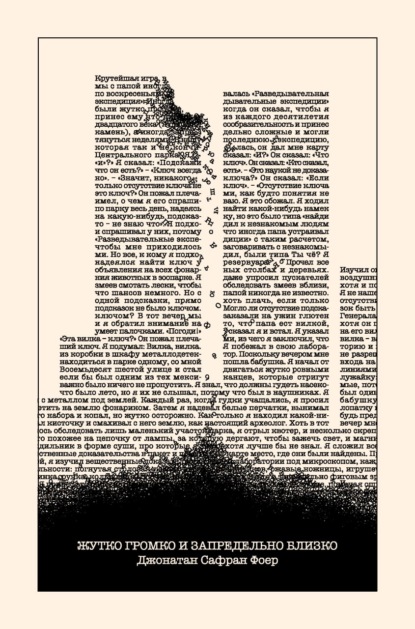
Текст
отзывы: 0 | рейтинг: 0
Полная версия
Полная версия
A Spanish Honeymoon
ANNE WEALE
When Liz moves to the idyllic Spanish village of Valdecarrasca, she's stunned to find herself living next door to the infamous Cameron Fielding….Cameron has a string of glamorous female visitors, so Liz is amazed to discover he's contemplating marriage–to her! It is strictly a practical proposal–but when their honeymoon sparks into passion, it's clear that their marriage could also become permanent…
Dear Reader,
If you live in a part of the world where the weather for much of the year is cold or wet, you probably dream of escaping to a warmer climate. Or if your job requires you to live in a city, you may daydream about a quiet life in the country.
The heroine of this story has realized both those dreams and—like her creator—escaped to a life in the sun in a village in the mountains of Spain. However, it isn’t long before the stresses she has left behind are replaced by emotional complications that turn her life upside down.
The setting for this book is very familiar to me. Valdecarrasca, the small Spanish pueblo in this story, is an amalgam of more than thirty real villages and small country towns. From each I have borrowed some feature—a fountain, a street, a plaza, a picturesque old house—combining them to create a place that is wholly imaginary and yet typical of the part of rural Spain where, for many years, I have been spending the winters.
Having created Valdecarrasca, I find my imagination teeming with ideas for more stories set in or near the village. At the end of this book you will find an extract from my next Valdecarrasca love story, The Man from Madrid (#3793), published in Harlequin Romance® next month.
Anne
anne@anneweale.com
Anne Weale was still at school when a women’s magazine published some of her stories. At twenty-five she had her first novel accepted by Mills & Boon®. Now, with a grown-up son and happily married to her first love, Anne divides her life between her winter home, a Spanish village ringed by mountains and vineyards, and a summer place in Guernsey, one of the many islands around the world that she has used as backgrounds for her books.
Acclaim for Anne Weale’s writing:
“Sweet romance, with interesting characters.”
—Affaire de Coeur
“A rich reading experience.”
—Romantic Times
A Spanish Honeymoon
Anne Weale
www.millsandboon.co.uk (http://www.millsandboon.co.uk)
CONTENTS
CHAPTER ONE (#u81ac7f5d-8734-50a4-a2e1-bc40d4906c6b)
CHAPTER TWO (#u7d775e24-4cb1-5afc-bcf9-987d7f4b0c0c)
CHAPTER THREE (#litres_trial_promo)
CHAPTER FOUR (#litres_trial_promo)
CHAPTER FIVE (#litres_trial_promo)
CHAPTER SIX (#litres_trial_promo)
CHAPTER SEVEN (#litres_trial_promo)
CHAPTER EIGHT (#litres_trial_promo)
CHAPTER ONE
La mujer sin hombre es como el fuego sin leña.
Woman without man is like fire without wood.
THERE were nights when Liz couldn’t sleep.
Memories…regrets…doubts…unfulfilled longings…elation at breaking free…panic at her recklessness; all these fizzed about in her brain, like the firecrackers the village boys let off in the street on fiestas, and made sleeping impossible.
When this happened she would get out of bed, make a mug of herb tea and, unless it was raining, which was blessedly seldom in this benign climate, climb the outside staircase to the flat roof where she dried her laundry and sunbathed.
One night she was up there, gazing at the moonlit mountains surrounding the valley, when she was startled by noises. They came from the big house that had its front door on the next street up the hillside on which the small Spanish village of Valdecarrasca was built.
Named after the fig tree in a corner of its walled garden, the big house was called La Higuera. Its rear windows overlooked the rooftops of the terrace of much smaller houses on the street below, where Liz lived. But as La Higuera had been empty since her arrival, six months ago, she had almost forgotten that, some day, its owner would return and her flat roof would no longer be as private as it had been up to now.
The first intimation that someone had arrived was the rattling sound of the persianas being rolled up, releasing a glow of light from each of the ground-floor windows.
Liz’s instinctive reaction was to leap up from the lounger, hurry down the staircase and disappear into her house before anyone at La Higuera noticed her.
Standing in her unlighted kitchen, she waited to see if the blinds hiding the upstairs windows of the big house would be rolled up. It might not be Cameron Fielding, the owner, who had arrived. Sometimes, she had been told, he lent the house to his friends.
To many of the foreigners living in or around the village, Cameron Fielding was a household name. Liz had never heard of him until she started living in Valdecarrasca. Nor, from what she had been told, did she like the sound of him. However, being a fair-minded person, she took some of the more scandalous stories with a pinch of salt.
Whoever it was who had arrived at La Higuera must have come without Alicia being notified, she thought, as she watched and waited.
Alicia was the portly Spanish lady paid a retainer to keep an eye on the house while it was empty, and to air and clean it before anyone used it. According to village rumour, she was supposed to do this once a month so that it was always in order. In practice, so Liz had heard, she did it only a day or two before Mr Fielding or his guests were expected.
This time, it seemed, she had been caught napping. To Liz’s certain knowledge, Alicia had not set foot in the place for months, which meant that every horizontal surface would be thick with dust and the rooms would have a musty smell.
Wondering if tomorrow Alicia would find herself out on her ear, Liz saw one of the upstairs persianas being hauled up by the stout tape that reeled the slats into a box at the top of the window. Many village houses, including her own, still had the old-fashioned wooden-slatted blinds that were pulled up by cords into a roll that remained visible. But La Higuera had been altered and modernised.
The person who had lifted the blind was a man but, because he was silhouetted by the lights in the room behind him, all she could see was that he was tall and broad-shouldered, with dark hair. In fact he looked like a Spaniard. Although many of the elderly locals were short and often bandy-legged, owing to an inadequate diet in the years when Spain was a poor and backward country, the younger Spaniards had much better physiques and were as well-built as their contemporaries in other parts of Europe.
Then a second person came into view, a woman. As the man, whoever he was, stood looking out at the moonlit valley, she moved close behind him and put her arms round him. Immediately he swung round to return her embrace. Liz saw his head bend towards the girl’s and, for quite a long time, they engaged in what was clearly a passionate kiss.
It was still going on when, almost as if some sixth sense told him they were not as private as they might expect to be in a small Spanish village at one o’clock in the morning, he reached out an arm towards the side of the window. The next moment Liz’s view of the embrace was blocked by the pair of curtains whose draw-cord he must have pulled.
Feeling as guilty as if she had been caught watching something far more intimate than a kiss, Liz drew the kitchen curtains and felt her way to the light switch. Then she made another cup of tea and took it up to her bedroom, intending to continue reading the book on top of the stack on her night table.
But, like a love scene in a movie or on TV, what she had seen had stirred up the powerful yearnings that, as they had no hope of being realised, she did her best to keep battened down.
She was also curious to know if the man in the bedroom at La Higuera was, in fact, the legendary womaniser whose amorous exploits provided so many titbits of gossip for his fellow foreigners to relish.
‘…a different girlfriend every time he comes here,’ was one of the allegations Liz had heard about him.
‘Not what you could call handsome, but madly attractive…my goodness, yes, as attractive as the devil and totally without morals. Still, as he isn’t married, can you blame him for grabbing his opportunities?’ was another comment that had stuck in her memory.
Liz, who had had her childhood and teenage years blighted by a man of the same stamp who had been married, was disposed to dislike all philanderers. She had no time for people who treated sex as a game. She despised them all.
Despite a disturbed night, she was up at her usual early hour the next day. Brushing her teeth in the bathroom, she thought for the umpteenth time how different she looked today from the way she had looked on arrival, pallid-faced and drawn after a cold and wet northern European winter and a succession of head colds caught while commuting from her home in the outer suburbs to her workplace in central London.
Now, even after a disturbed night, she had three times as much vitality as she had ever had in England. She had never been a beauty. Her dark blue eyes and her clear skin—once pale but now lightly tanned—were her best features, counterbalanced by a disastrous nose and a rather unfeminine chin.
In her other life, as she had begun to think of it, she had adapted her hairstyle to a conservative version of whatever was the prevailing fashion. Here, to save money, she had given up going to the hairdresser and let it grow to a length she could tie back or pin up. Her basic colour was mid-brown. In place of professionally-done highlights, these days she had only sun streaks, helped by rubbing selected strands with a cut lemon. There was always a lemon to hand because there was a limonero, that bore fruit all year round, growing in her little back yard.
After a quick hot shower, she dressed in a plain white T-shirt, a navy blue cotton skirt and navy sneakers. Later she was driving to the weekly produce market in a larger village a few kilometres away. She had planned, immediately after breakfast, to spend half an hour working in the walled garden of La Higuera.
In the same way that Alicia was supposed to look after the interior of the house, the previous owner of Liz’s house, an elderly Englishwoman called Beatrice Maybury, had undertaken to take care of the neighbouring garden. Beatrice had asked if Liz would be willing to continue this work and Liz had agreed. She had always liked gardening, and the generous fee paid to her predecessor in return for an hour’s work a week would be a welcome addition to her limited funds. At that time, of course, she had not known the kind of man the house belonged to. Beatrice had never mentioned his predatory tendencies. Perhaps she had been unaware of them since, by all accounts, she had kept herself to herself and not been part of the expatriates’ grapevine.
After their late arrival, and whatever had followed that passionate kiss, it seemed unlikely the people staying at La Higuera would be up and about before mid-morning. Liz decided to stick to her plan and do some weeding and watering before they surfaced for the day.
She entered the property by a gate at the side of the house that, by way of a narrow passage, led down to the ‘secret’ garden at the rear. Most of the larger houses in the main part of the village did not have gardens, only patios. In the rest of Europe, a patio meant any paved sitting-out area. But in Spain it was an open area within the structure of a building. In Valdecarrasca, many of the houses too small to have a patio had a small garden or yard. But the garden behind La Higuera was the size of a tennis court.
Her first task today was to plant out some cuttings she had taken from a clump of silvery-grey artemisia and kept, in water, in a dark green wine bottle until they put out small roots.
ANNE WEALE
When Liz moves to the idyllic Spanish village of Valdecarrasca, she's stunned to find herself living next door to the infamous Cameron Fielding….Cameron has a string of glamorous female visitors, so Liz is amazed to discover he's contemplating marriage–to her! It is strictly a practical proposal–but when their honeymoon sparks into passion, it's clear that their marriage could also become permanent…
Dear Reader,
If you live in a part of the world where the weather for much of the year is cold or wet, you probably dream of escaping to a warmer climate. Or if your job requires you to live in a city, you may daydream about a quiet life in the country.
The heroine of this story has realized both those dreams and—like her creator—escaped to a life in the sun in a village in the mountains of Spain. However, it isn’t long before the stresses she has left behind are replaced by emotional complications that turn her life upside down.
The setting for this book is very familiar to me. Valdecarrasca, the small Spanish pueblo in this story, is an amalgam of more than thirty real villages and small country towns. From each I have borrowed some feature—a fountain, a street, a plaza, a picturesque old house—combining them to create a place that is wholly imaginary and yet typical of the part of rural Spain where, for many years, I have been spending the winters.
Having created Valdecarrasca, I find my imagination teeming with ideas for more stories set in or near the village. At the end of this book you will find an extract from my next Valdecarrasca love story, The Man from Madrid (#3793), published in Harlequin Romance® next month.
Anne
anne@anneweale.com
Anne Weale was still at school when a women’s magazine published some of her stories. At twenty-five she had her first novel accepted by Mills & Boon®. Now, with a grown-up son and happily married to her first love, Anne divides her life between her winter home, a Spanish village ringed by mountains and vineyards, and a summer place in Guernsey, one of the many islands around the world that she has used as backgrounds for her books.
Acclaim for Anne Weale’s writing:
“Sweet romance, with interesting characters.”
—Affaire de Coeur
“A rich reading experience.”
—Romantic Times
A Spanish Honeymoon
Anne Weale
www.millsandboon.co.uk (http://www.millsandboon.co.uk)
CONTENTS
CHAPTER ONE (#u81ac7f5d-8734-50a4-a2e1-bc40d4906c6b)
CHAPTER TWO (#u7d775e24-4cb1-5afc-bcf9-987d7f4b0c0c)
CHAPTER THREE (#litres_trial_promo)
CHAPTER FOUR (#litres_trial_promo)
CHAPTER FIVE (#litres_trial_promo)
CHAPTER SIX (#litres_trial_promo)
CHAPTER SEVEN (#litres_trial_promo)
CHAPTER EIGHT (#litres_trial_promo)
CHAPTER ONE
La mujer sin hombre es como el fuego sin leña.
Woman without man is like fire without wood.
THERE were nights when Liz couldn’t sleep.
Memories…regrets…doubts…unfulfilled longings…elation at breaking free…panic at her recklessness; all these fizzed about in her brain, like the firecrackers the village boys let off in the street on fiestas, and made sleeping impossible.
When this happened she would get out of bed, make a mug of herb tea and, unless it was raining, which was blessedly seldom in this benign climate, climb the outside staircase to the flat roof where she dried her laundry and sunbathed.
One night she was up there, gazing at the moonlit mountains surrounding the valley, when she was startled by noises. They came from the big house that had its front door on the next street up the hillside on which the small Spanish village of Valdecarrasca was built.
Named after the fig tree in a corner of its walled garden, the big house was called La Higuera. Its rear windows overlooked the rooftops of the terrace of much smaller houses on the street below, where Liz lived. But as La Higuera had been empty since her arrival, six months ago, she had almost forgotten that, some day, its owner would return and her flat roof would no longer be as private as it had been up to now.
The first intimation that someone had arrived was the rattling sound of the persianas being rolled up, releasing a glow of light from each of the ground-floor windows.
Liz’s instinctive reaction was to leap up from the lounger, hurry down the staircase and disappear into her house before anyone at La Higuera noticed her.
Standing in her unlighted kitchen, she waited to see if the blinds hiding the upstairs windows of the big house would be rolled up. It might not be Cameron Fielding, the owner, who had arrived. Sometimes, she had been told, he lent the house to his friends.
To many of the foreigners living in or around the village, Cameron Fielding was a household name. Liz had never heard of him until she started living in Valdecarrasca. Nor, from what she had been told, did she like the sound of him. However, being a fair-minded person, she took some of the more scandalous stories with a pinch of salt.
Whoever it was who had arrived at La Higuera must have come without Alicia being notified, she thought, as she watched and waited.
Alicia was the portly Spanish lady paid a retainer to keep an eye on the house while it was empty, and to air and clean it before anyone used it. According to village rumour, she was supposed to do this once a month so that it was always in order. In practice, so Liz had heard, she did it only a day or two before Mr Fielding or his guests were expected.
This time, it seemed, she had been caught napping. To Liz’s certain knowledge, Alicia had not set foot in the place for months, which meant that every horizontal surface would be thick with dust and the rooms would have a musty smell.
Wondering if tomorrow Alicia would find herself out on her ear, Liz saw one of the upstairs persianas being hauled up by the stout tape that reeled the slats into a box at the top of the window. Many village houses, including her own, still had the old-fashioned wooden-slatted blinds that were pulled up by cords into a roll that remained visible. But La Higuera had been altered and modernised.
The person who had lifted the blind was a man but, because he was silhouetted by the lights in the room behind him, all she could see was that he was tall and broad-shouldered, with dark hair. In fact he looked like a Spaniard. Although many of the elderly locals were short and often bandy-legged, owing to an inadequate diet in the years when Spain was a poor and backward country, the younger Spaniards had much better physiques and were as well-built as their contemporaries in other parts of Europe.
Then a second person came into view, a woman. As the man, whoever he was, stood looking out at the moonlit valley, she moved close behind him and put her arms round him. Immediately he swung round to return her embrace. Liz saw his head bend towards the girl’s and, for quite a long time, they engaged in what was clearly a passionate kiss.
It was still going on when, almost as if some sixth sense told him they were not as private as they might expect to be in a small Spanish village at one o’clock in the morning, he reached out an arm towards the side of the window. The next moment Liz’s view of the embrace was blocked by the pair of curtains whose draw-cord he must have pulled.
Feeling as guilty as if she had been caught watching something far more intimate than a kiss, Liz drew the kitchen curtains and felt her way to the light switch. Then she made another cup of tea and took it up to her bedroom, intending to continue reading the book on top of the stack on her night table.
But, like a love scene in a movie or on TV, what she had seen had stirred up the powerful yearnings that, as they had no hope of being realised, she did her best to keep battened down.
She was also curious to know if the man in the bedroom at La Higuera was, in fact, the legendary womaniser whose amorous exploits provided so many titbits of gossip for his fellow foreigners to relish.
‘…a different girlfriend every time he comes here,’ was one of the allegations Liz had heard about him.
‘Not what you could call handsome, but madly attractive…my goodness, yes, as attractive as the devil and totally without morals. Still, as he isn’t married, can you blame him for grabbing his opportunities?’ was another comment that had stuck in her memory.
Liz, who had had her childhood and teenage years blighted by a man of the same stamp who had been married, was disposed to dislike all philanderers. She had no time for people who treated sex as a game. She despised them all.
Despite a disturbed night, she was up at her usual early hour the next day. Brushing her teeth in the bathroom, she thought for the umpteenth time how different she looked today from the way she had looked on arrival, pallid-faced and drawn after a cold and wet northern European winter and a succession of head colds caught while commuting from her home in the outer suburbs to her workplace in central London.
Now, even after a disturbed night, she had three times as much vitality as she had ever had in England. She had never been a beauty. Her dark blue eyes and her clear skin—once pale but now lightly tanned—were her best features, counterbalanced by a disastrous nose and a rather unfeminine chin.
In her other life, as she had begun to think of it, she had adapted her hairstyle to a conservative version of whatever was the prevailing fashion. Here, to save money, she had given up going to the hairdresser and let it grow to a length she could tie back or pin up. Her basic colour was mid-brown. In place of professionally-done highlights, these days she had only sun streaks, helped by rubbing selected strands with a cut lemon. There was always a lemon to hand because there was a limonero, that bore fruit all year round, growing in her little back yard.
After a quick hot shower, she dressed in a plain white T-shirt, a navy blue cotton skirt and navy sneakers. Later she was driving to the weekly produce market in a larger village a few kilometres away. She had planned, immediately after breakfast, to spend half an hour working in the walled garden of La Higuera.
In the same way that Alicia was supposed to look after the interior of the house, the previous owner of Liz’s house, an elderly Englishwoman called Beatrice Maybury, had undertaken to take care of the neighbouring garden. Beatrice had asked if Liz would be willing to continue this work and Liz had agreed. She had always liked gardening, and the generous fee paid to her predecessor in return for an hour’s work a week would be a welcome addition to her limited funds. At that time, of course, she had not known the kind of man the house belonged to. Beatrice had never mentioned his predatory tendencies. Perhaps she had been unaware of them since, by all accounts, she had kept herself to herself and not been part of the expatriates’ grapevine.
After their late arrival, and whatever had followed that passionate kiss, it seemed unlikely the people staying at La Higuera would be up and about before mid-morning. Liz decided to stick to her plan and do some weeding and watering before they surfaced for the day.
She entered the property by a gate at the side of the house that, by way of a narrow passage, led down to the ‘secret’ garden at the rear. Most of the larger houses in the main part of the village did not have gardens, only patios. In the rest of Europe, a patio meant any paved sitting-out area. But in Spain it was an open area within the structure of a building. In Valdecarrasca, many of the houses too small to have a patio had a small garden or yard. But the garden behind La Higuera was the size of a tennis court.
Her first task today was to plant out some cuttings she had taken from a clump of silvery-grey artemisia and kept, in water, in a dark green wine bottle until they put out small roots.
Другие книги автора:
Популярные книги





















